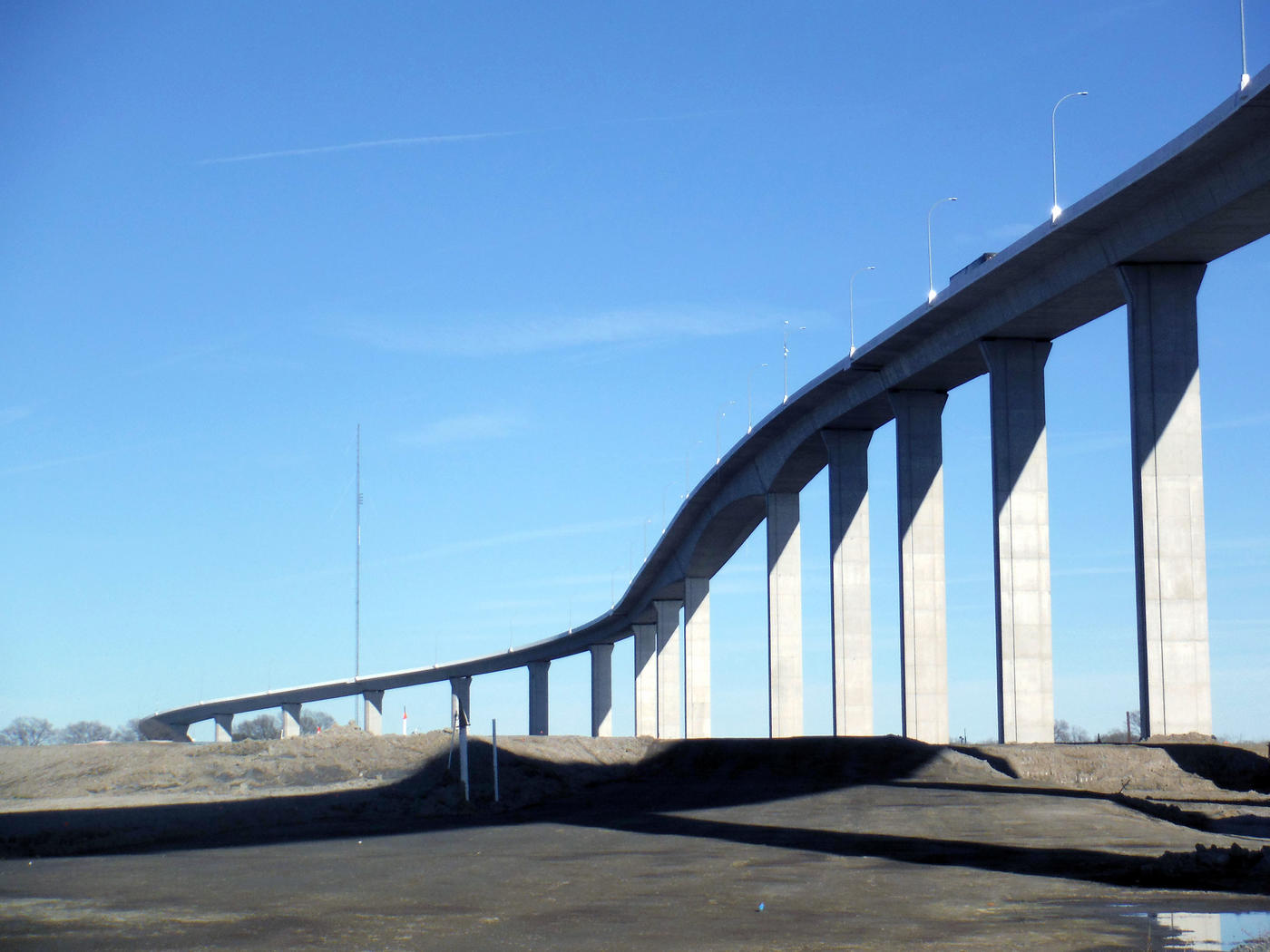Keller assisted the client in identifying an economical approach to produce a safe working platform for the equipment while minimizing the impact on the schedule.

The project
A 1,150-foot berth was planned for construction on the Atlantic Wood Superfund 48-acre property, which previously hosted a wood production facility. To achieve the final grade, approximately 12 feet of fill was to be placed over the existing 40-foot-deep soft marine sediments contaminated with creosote and pentachlorophenol used to preserve wood at the previous facility. An existing elevated highway supported on piles traversed the site.
The challenge
The settlement of the marine sediments would take several years, delaying future planned use of the site by a precast concrete supplier. In addition, the groundwater drainage from the soft marine sediments resulting from the fill surcharge would be contaminated. The existing bridge piling would experience down drag loading during the consolidation of the marine sediments. A solution of solidifying the contaminated material with cement to great depth would have been very costly.
The solution
Wick drains were selected as a cost-efficient solution to accelerate settlement and strength gain during the planned fill placement. The wick drains were installed through the compressible layer and connected to a pump system to collect and remove the contaminated fluid for treatment. The existing highway piling was determined to have sufficient capacity to withstand the down drag loading.

